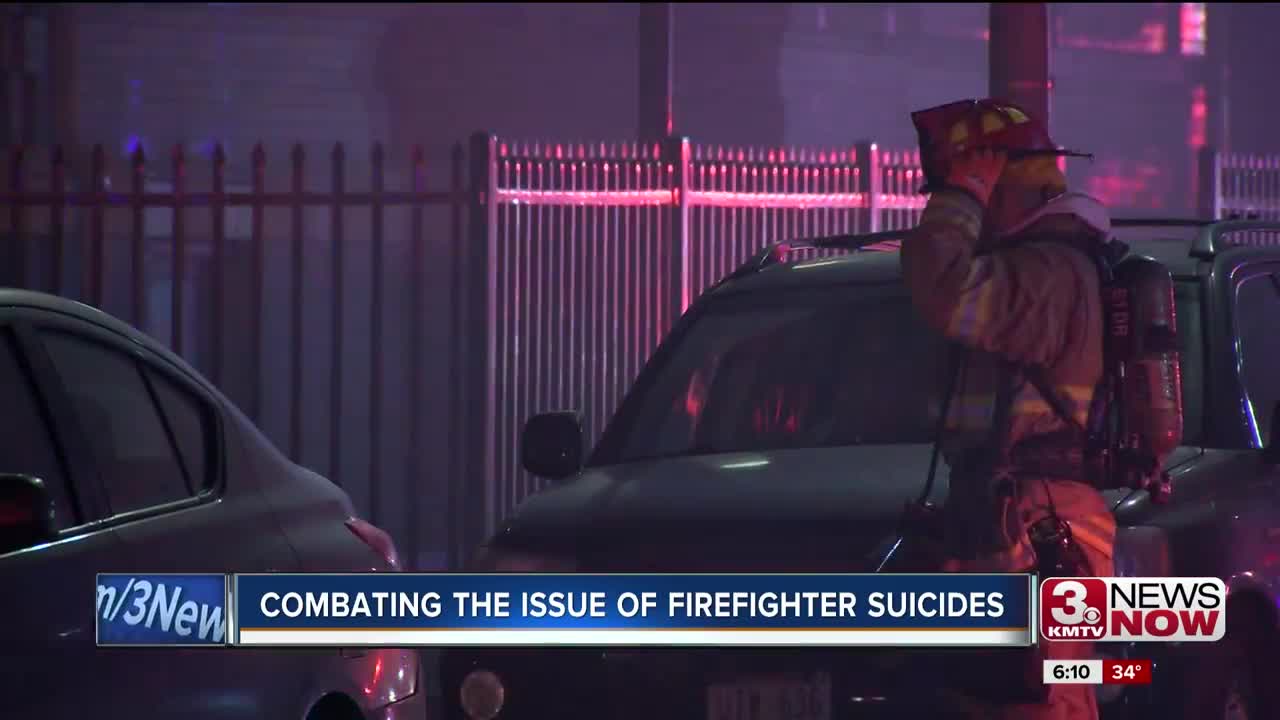OMAHA, Neb. (KMTV) — A new report showed suicides outnumber those killed in the line of duty in 2019 among firefighters.
Because of this, fire departments, other organizations and even families impacted by the problem continue to work on ways to improve mental health for those that may need it most.
"I began to see there was a lot of things that were lacking, that could have helped," says Heather Livengood.
What if, is a question Livengood asks quite often after her husband Rich, an Omaha firefighter, died by suicide in 2014.
"He really had a servant's heart, he really liked to help people," she says.
Seeing things like accidents and death on a daily basis is normal for first responders.
"If you're having a post traumatic stress response, a lot of that is normal in the beginning when you're exposed to trauma. But if it's not handled it will generally get worse as time goes on. Worse case scenario can lead to suicide," said First Responders Foundation Mental Health Practitioner Stephanie Levy.
Levy is part of a push to change the culture within fire departments. Suicide rates among firefighters were nearly double that of those who died in the line of duty in 2019 according to one recent report. A lot of that has to do with a stigma that first responders shouldn't ask for help.
"You go to the doctor when you have an ache in your arm. Why not go to the doctor when you're having thoughts or you're having issues or something like that? It should be considered the same thing," said Mary Rosenthal of the First Responders Foundation.
It's okay to not be okay and talking about mental health concerns is something that continues to be taught. There's also a push to train fellow firefighters to look for signs in coworkers that something may be wrong.
"The peers are trained listeners. They obviously provide therapy but they can provide gentle advice on how to manage stress in healthy ways," said Omaha Fire Department Assistant Chief Kathy Bossman.
Those peers are now taking what they learned from that training and are teaching others from other departments.
"The better we can train our peer support and the more people we can have being that voice of it's okay to talk, it's okay to ask for help, the better the department will be."
Keeping the conversation going is another critical part, as Livengood is encouraged by all the changes, and hopes others won't go down the same path.
"I'm super happy with the changes and I think it's all a great first step. But I think it all needs to continue to grow. I hope they will get help before they take their life," she says.
Part one of suicide prevention at OFD: OFD providing support & training to prevent member suicides
Stay up-to-date and receive instant notifications by downloading the 3 News Now app for your mobile device:



